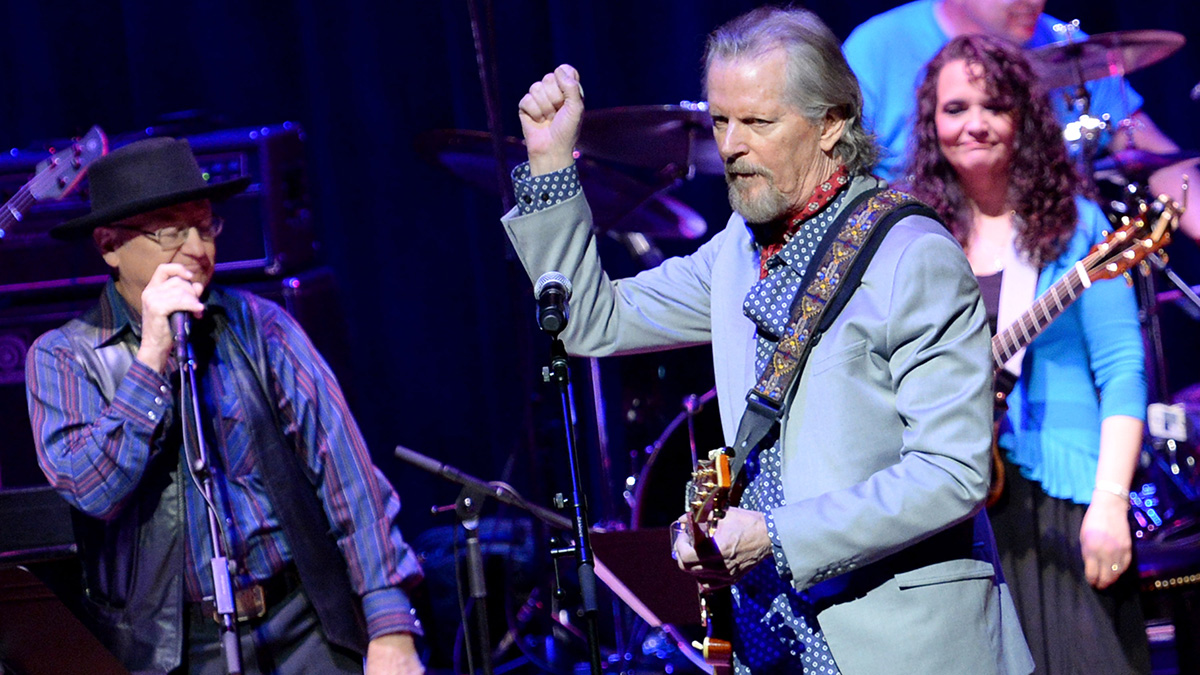Blackbyrd McKnight on his tumultuous tenure with Red Hot Chili Peppers, the secret to great funk guitar playing, and why Jimi Hendrix is far from overrated
He's played with everyone from George Clinton to Herbie Hancock, Miles Davis and the Chili Peppers. We catch up with DeWayne “Blackbyrd” McKnight for a far-reaching chat about his extraordinary career
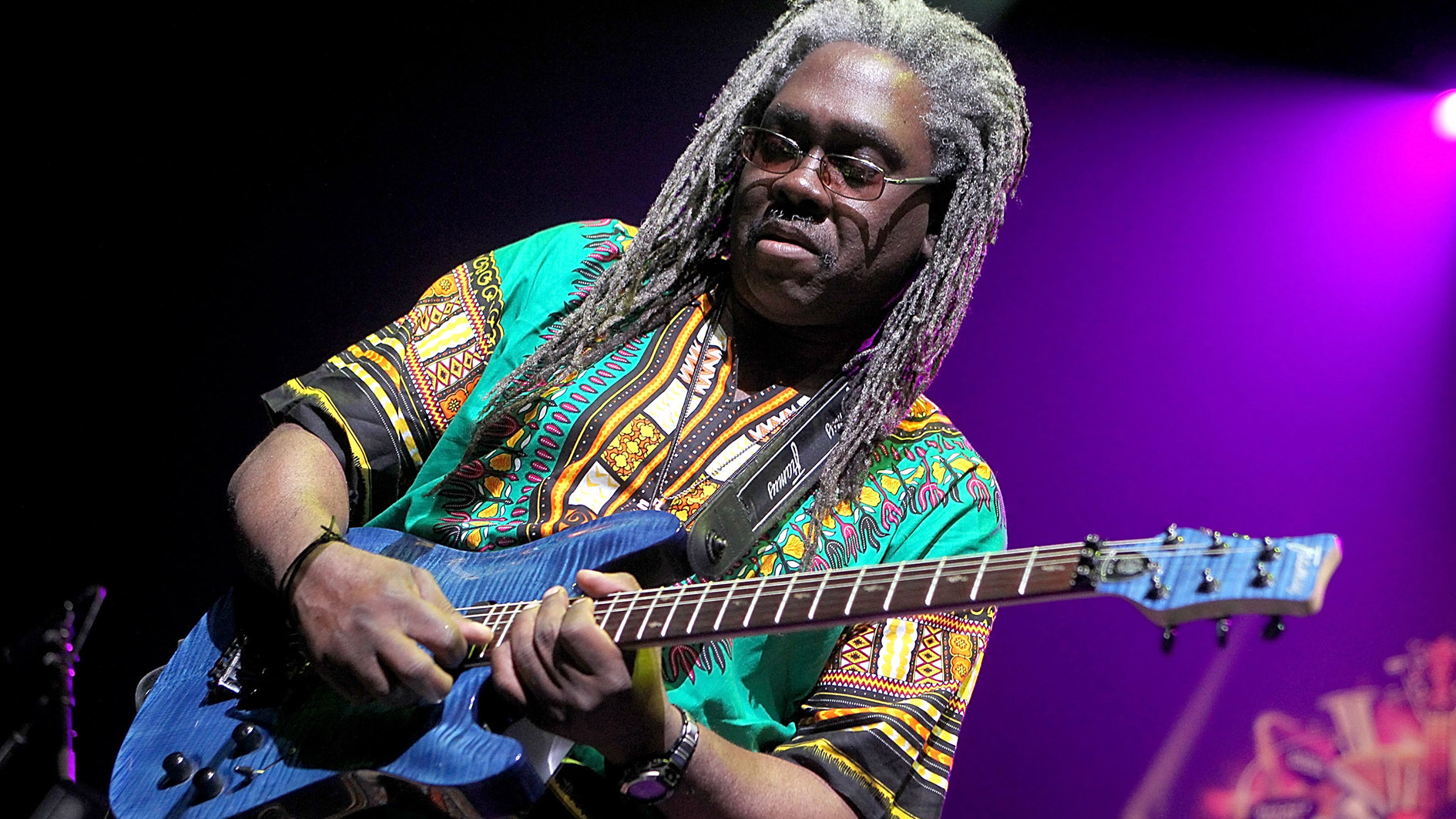
Over the course of a 50-year career in music, DeWayne “Blackbyrd” McKnight has scrawled his signature across droves of meaningful records littering the jazz, fusion, and funk landscapes.
McKnight grew up in a home filled with music, but unlike many of his contemporaries, it wasn't radio or a bustling local scene that hooked the youngster on music; instead, it was the images McKnight saw on his parents' television that shaped his earliest leanings.
“My interest in the guitar probably first came from watching TV," McKnight wistfully recalls. "I remember seeing Bo Diddley on TV, which was a big moment. But I used to watch anything with music when I was a kid, so pretty much anything I saw on TV would have done it for me.
“Plus, my parents had an excellent record collection and were avid listeners of music, so there was a lot of music in the house. Early on, I was very into jazz, blues, R&B, and rock, so that got me going.”
As he grew older, the burgeoning six-stringer regularly jammed with scene veterans, bassist Ken Jenkins and drummer James Zito, honing his chops and readying himself for anything and everything. Through these same connections, McKnight would be afforded his first opportunity in the sun on a small stage with legendary tenor saxophonist Charles Lloyd.
“My first gig was probably in '71 or '72 at the Lighthouse Cafe in California,” McKnight recollects. “I knew the bass player and the drummer, and we would jam together a lot. We'd hang out at whoever's house, and we made a bunch of tapes of our jams, and unbeknownst to me, they took them and presented them to Charles Lloyd. He liked it, so he invited me to come and sit in at a gig at the Lighthouse, which got the ball rolling for me.”
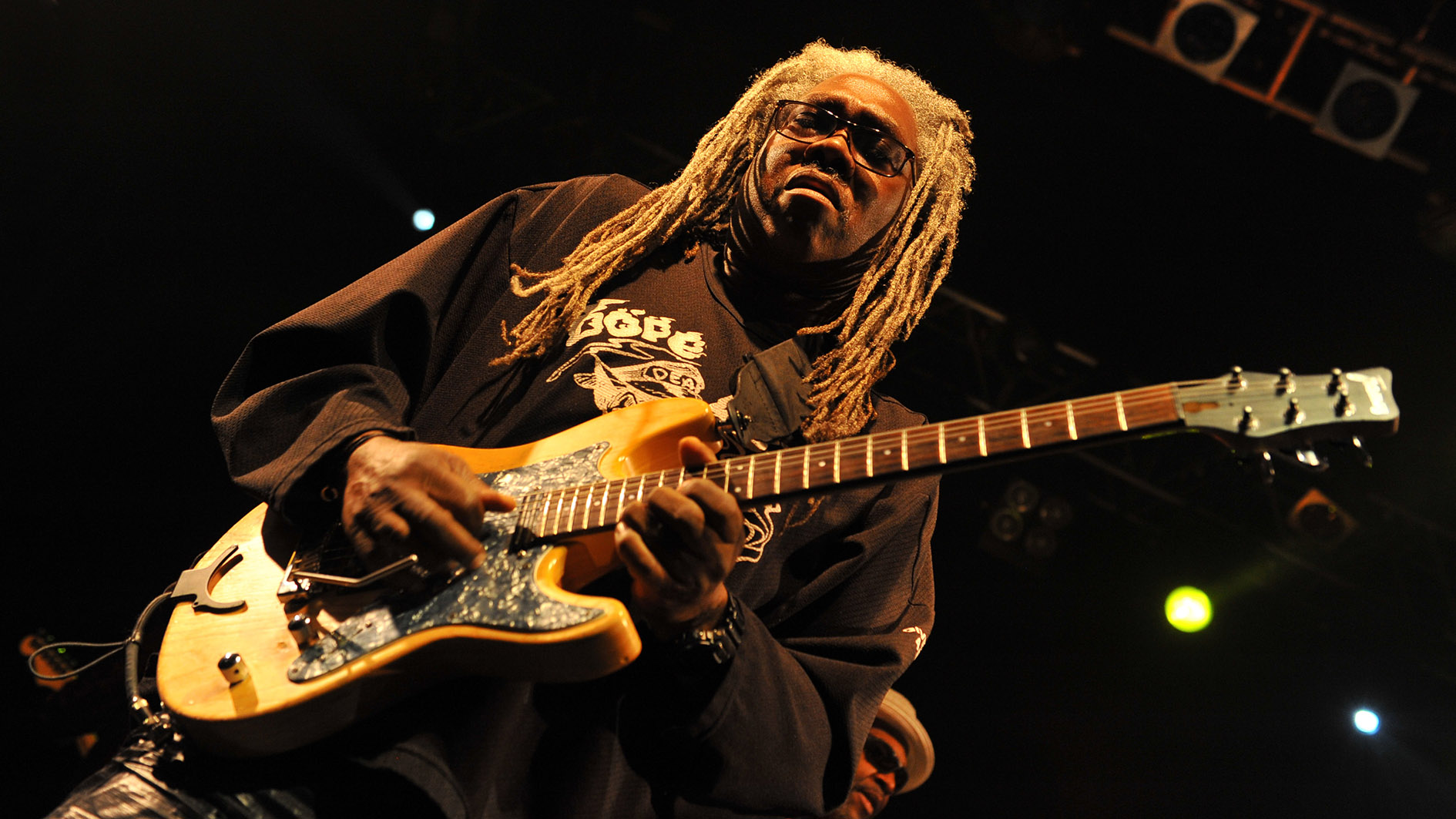
The aspiring guitarist made the most of the opportunity, swiftly making a name for himself, securing gigs with Herbie Hancock, appearing on jazz-fusion classics Flood (1975), Survival of the Fittest (1975), and Straight from the Gate (1977) before a chance meeting with P-Funk alumni, Ron Brembry, changed his course forever.
Get The Pick Newsletter
All the latest guitar news, interviews, lessons, reviews, deals and more, direct to your inbox!
“I was walking home one day, and I heard Ron playing his guitar through his window, and I went and banged on his door,” McKnight says. “I remember he was playing P-Funk stuff, which I dug, so we started jamming together pretty much every day, but I didn't know that he knew these people.
“So, after about six months of that, he introduced me to Archie Ivy, and we jammed together. And after the jam session, Archie said, ‘So, in about a year, George is going to start another project. If you're interested, give me a call, and I'll send you to Detroit, where the audition is going down.’ I didn't know it would be for P-Funk, but there I was a year later, and I must have nailed it because they asked me to join the band.”
In the ensuing years, McKnight has stamped his name across history as a consistent sideman to George Clinton while also sharing the stage with Miles Davis and many others. Still, his tumultuous time with California-born funk rock outfit Red Hot Chili Peppers serves as McKnight's most infamous lesion.
When I started, I set out to accomplish three things: play with Herbie Hancock, play with Parliament Funkadelic, and play with Miles Davis. I did all those things
Though the Covid pandemic has slowed his pace, McKnight is as active as ever, with the funk all-star carefully plotting his next musical move. Ever-nimble, and ready to strike a moment's notice, the veteran guitarist isn't looking back; his gaze remains ever fixed on the horizon, with the knowledge that musically, he's only just getting started.
“When I started, I set out to accomplish three things: play with Herbie Hancock, play with Parliament Funkadelic, and play with Miles Davis,” he says. “I did all those things. I might have only got to play with Miles live in the '80s – I didn't get to make music with him – but I did it, and that's enough for me.
“As for the rest, I've made music that speaks to my soul. I've created cool sounds with George Clinton – the most fun cat to work in the studio with that I've ever met – and I've still got my music to work on. Once Covid clears, I've got a lot of time to make up for. I need to make sure I don't get sick and end up dying.”
Taking a break from the prescribed musical chaos, Blackbyrd McKnight checked in with Guitar World, dialing in via phone to recount his earliest musical memories, stepping out of the shadow of Eddie Hazel, his misadventures with the Red Hot Chili Peppers, and his approach to funk rock guitar.
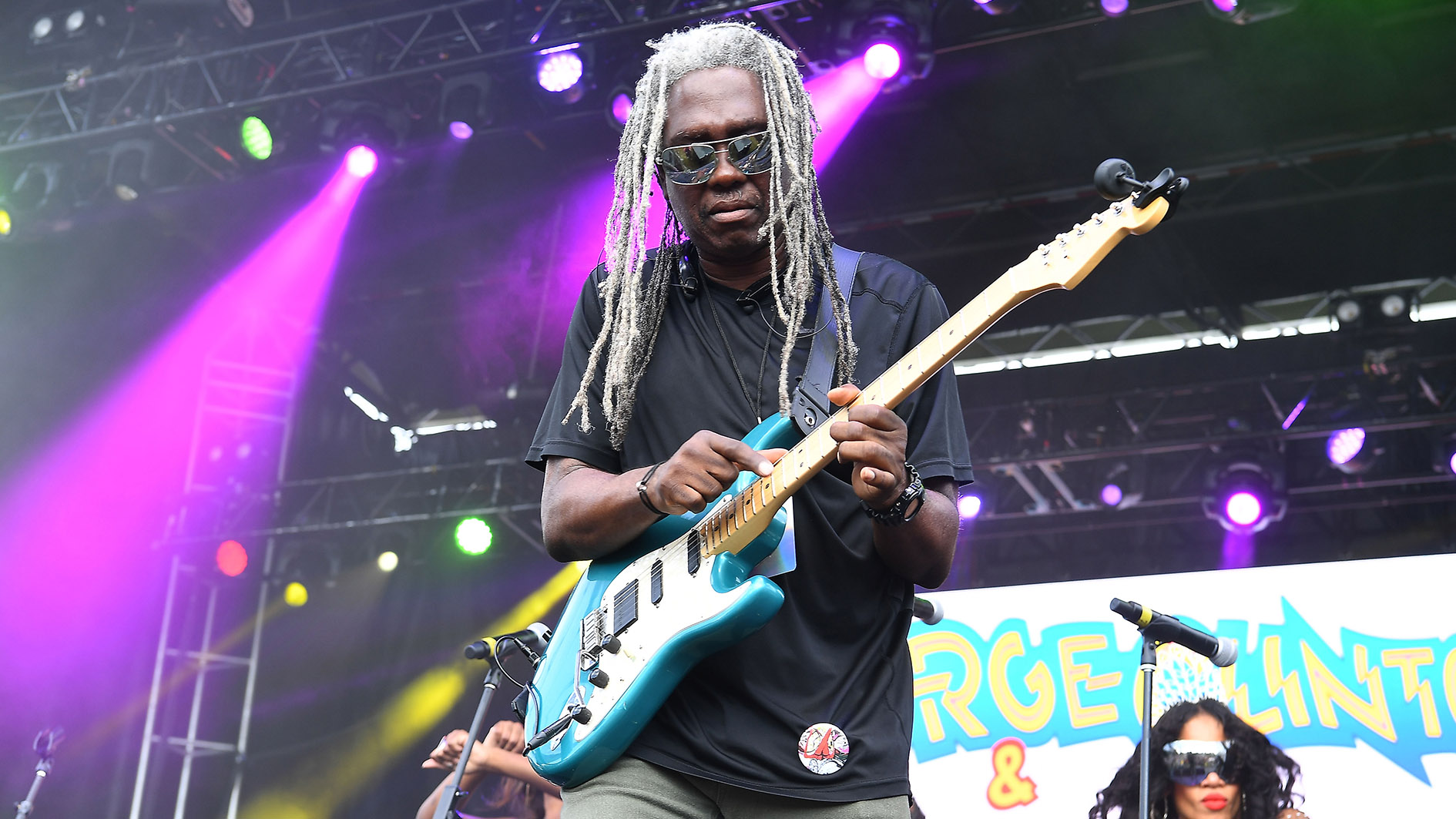
Who were some of your earliest influences?
“First and foremost, it comes down to Jimi Hendrix. I know it's popular to say Hendrix was overrated, but that ain't true. The people who don't like Hendrix are those who just don't understand the importance of where that guitar style comes from.
“Hendrix is one of the most important influences on my life as far as guitar is concerned. I wanted to play the way he did and sing the way he did too. His compositions, as well as his guitar playing, were always outstanding, but he was also a gifted songwriter and singer as well.
“Beyond Hendrix, P-Funk was the other band with all the elements; you've got rocking guitars and some badass funk right there, dude. And then you've got these lyrics that are out of this world, touching on anything from sex, politics, religion – anything.
“For me, P-Funk had the same elements Hendrix did but in the funk realm. They stretched boundaries and opened my mind, so they were my other early influence. But I couldn't say which is truly number one or two; I can't put one above the other because those two artists shaped my life.”
How did you end up working on Herbie Hancock's Flood?
“That all began with Billy Martin. We were sitting at a taxi stand outside of Kansas City and caught a ride together. And during the ride, Billy discovered what a big fan of Herbie Hancock I was. And after getting a whiff of that, I could see that Billy was taking everything I was saying.
“So, when he got out of the taxi, he said, “You know what, young man? You and I are gonna play together someday,” and he took my number. About a year later, he called me and invited me to come and jam, and then they asked me to play on Herbie's record.
“It's interesting, though, because I didn't meet Herbie at all during the recording of Flood. I didn't meet Herbie until we were working on the Survival of the Fittest album when he walked into one of the sessions.
“I don't remember much, but I do remember that the band rehearsed and wrote everything together and that everything was split five ways. I'd say I affected that album greatly because I was the only chordal instrument there.”
Can you recount your first recording with P-Funk?
“My first recording with P-Funk was a track from the Gloryhallastoopid album. I had written a song called The Freeze (Sizzaleenmean), and how that came up was that I always used to carry these tapes around with me.
“So, I had this tape when I went into a session with George at United Sound in Detroit, and I gave it to him; he put the tape in his player, and he just went nuts, man. He loved it so much that he had me lay it down the exact same way that I had it on my little recording machine. George dug the track, he hooked me up, and I laid that shit down.”
When you joined P-Funk, did you feel beholden to the legacy of Eddie Hazel?
“Regardless of how I felt, I interjected my own style. Of course, when we played the old P-Funk songs, I did them as they were on with the records. I respected Eddie's work, but I did always have something in mind that I wanted to do, which was to fuse elements of jazz, rock, and funk.
“I always had that in mind, and that was always my approach with P-Funk. You have to remember Eddie Hazel was inspired by gospel music, and I'm not. I never felt the need to compare myself to Eddie because Eddie is the Godfather of P-Funk guitar, and I knew that.
This is something that many people don't know: a couple of times before Hillel Slovak passed, the truth is that he'd left Red Hot Chili Peppers
“I loved and respected Eddie, so I didn't go in with the attitude of following in his footsteps. I took whatever was thrown at me, elevated myself to the task, and gave the parts whatever I felt they needed to the best of my ability.”
How did you become involved with the Red Hot Chili Peppers in the '80s?
“So, this is something that many people don't know: a couple of times before Hillel Slovak passed, the truth is that he'd left the band, and during those periods, the Red Hot Chili Peppers had asked me to play with them.
“I believe that this happened on at least two occasions where they'd call me because Hillel had left again. I'd come in and learn however many songs they had at the time – all of them, not just some – and we'd plan for me to play with them.
“We did this at least twice, and all the way up to the day of the gig, I'd have a feeling that something was happening, you know? And both times, it was the day of the gig, and Flea and Anthony [Kiedis] would come to me and say, ‘Hillel is back; we don't need you after all.’
“You might even say that they had gotten me in there to coax Hillel back; at least, that's how I saw it. But I don't know how it went, and I don't know what they felt because I never talked about that with them.”

After Hillel passed, was there a conversation about you officially joining?
“Not with me. If Anthony and Flea had one internally, I couldn't tell you that either. But there was no discussion about that, and there was no ‘You're in the band’ moment. And that was tough, and I had thoughts about it, but I tried to push it out of my mind.
“So, we were rehearsing for a three- or four-show run, and at the end of the rehearsal, the drummer D. H. Peligro was talking about this guitar player he played with, and they all seemed to think he was perfect.
“I said to him, ‘Well, why don't they get this guy if he's so good?’ Well, unbeknownst to me, they were thinking about it.
“So, we did three or four shows, and after those shows, I got the news that I wouldn't be in the band. Needless to say, the guitarist they were talking about in rehearsals was John Frusciante. See, I never knew what would happen next, and it wasn't easy for me, to say the least.”
John Frusciante had what Hillel did down, and I saw that. I mean, they're different in some ways, and they did different things. But John played more in the direction of Hillel, and he was able to mimic him
Why do you feel Anthony and Flea went in the direction they did?
“The way I've always looked at it is that if I had to play with the Red Hot Chili Peppers, meaning if I had to play with those guys, then I would have rather changed the name of the band to something else. I felt that way because it wasn't the Red Hot Chili Peppers with me in the band.
“When I played in the band, I played in my style; I didn't play like Hillel Slovak. Of course, when it comes to the chords and the structures of the songs, sure, I tried to come as close as I possibly could.
“But when it comes to the soul of guitar, Hillel and I are two different beings with two different frames of mind. For example, one time, we were playing a song live – I don't remember which one - and at the end of the song, Flea came over to me and said, ‘Hillel didn't play it like that.’ All I could say to that was, ‘Sorry. Hillel is not here.’ So, there's your chemistry; that's what it was like.”
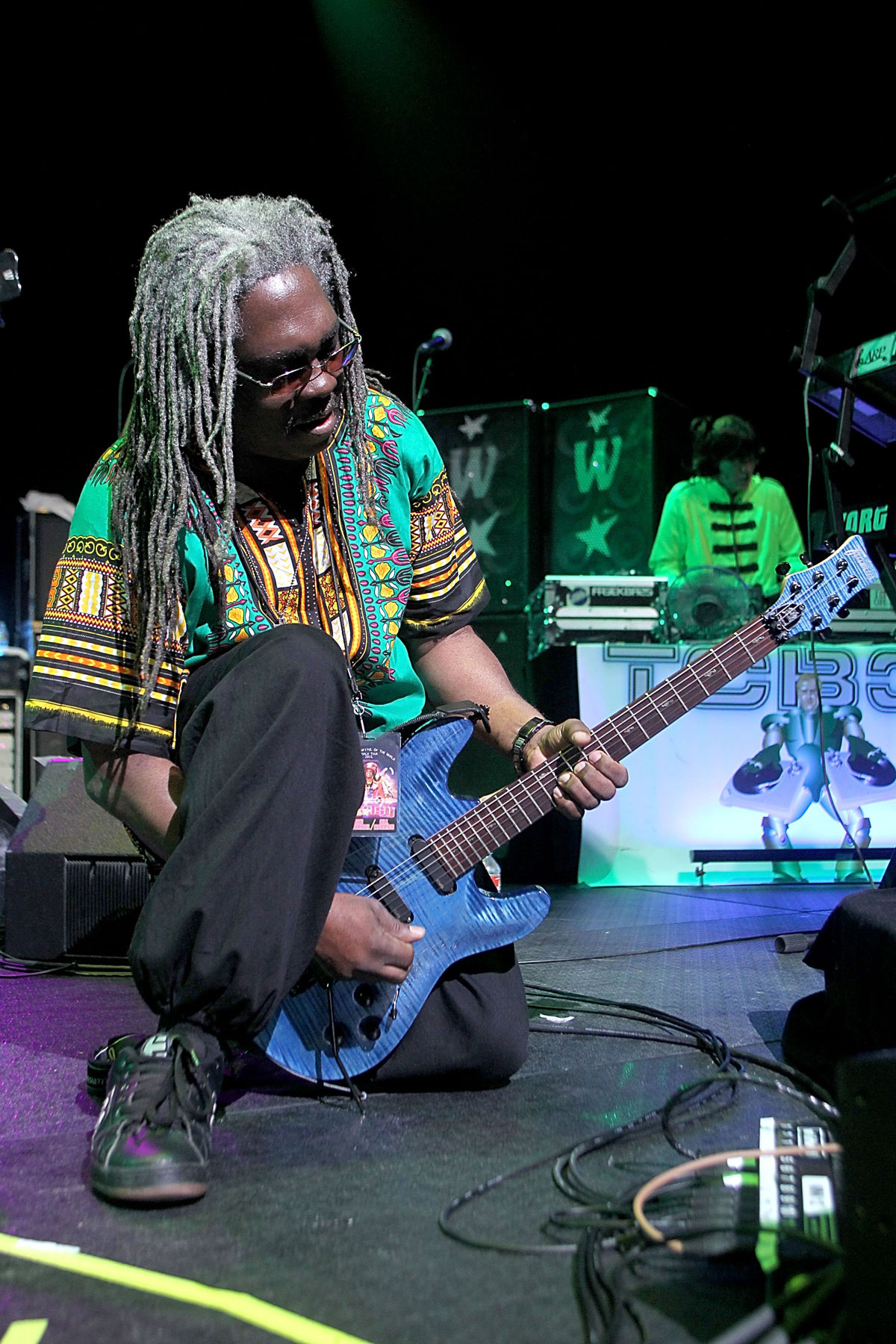
Considering John Frusciante also has a different style than Hillel, what made him a better fit?
“They made this MTV film when John joined the band, and I watched it; I remember they had a picture of both on a split screen, and I had to laugh. On one side was Hillel, and on the other was John Frusciante, and I remember thinking, ‘Wow, he's doing an exact mimic of what Hillel was doing. He's playing the exact sounds that Hillel used to.’
“To me, John Frusciante had what Hillel did down, and I saw that. I mean, they're different in some ways, and they did different things, I will grant you that. But John played more in the direction of Hillel, and he was able to mimic him. I didn't do that; honestly, I didn't want to and wasn't going to.”
Had you stayed with the Red Hot Chili Peppers, what direction might you have taken?
“Having not had the opportunity to do that, it's a tough question for me to answer. I will say that Anthony, Flea, and I all had a great affinity for jazz. It's also worth noting that while Flea and I got along alright, I didn't know Anthony all that well at the time, but I do know that we had a lot in common with music.
“But like I said, we would have had to change the name, and we would have needed to go in a different direction from there. Had we done that, I feel there's no telling where we could've gone and no end to what we could have done. Obviously, that did not happen, but I have no regrets.”
![[L-R] Blackbyrd McKnight and Bootsy Collins](https://cdn.mos.cms.futurecdn.net/NURnjHXJNbEz5bMooiMZFN.jpg)
What guitar do you revisit most often, and why?
“Ah, man. That's not fair. [Laughs]. If I had to pick one guitar, I'd say a Fender Stratocaster is my favorite. I go back to Jimi Hendrix, Curtis Mayfield, and even Bob Dylan; they all played Strats. I love the tone, the look, the versatility, the feel, and the way my music flows through me when I put my hands on a Strat.
“There's something about a Strat that speaks to me like no other guitar does or ever has. I've loved many guitars in my life, and I have others now that I love too, but I've never met a guitar quite like a Strat, and I've never met one that I didn't like. [Laughs].”
In your estimation, what is the secret to good funk guitar?
“Dude, I keep it simple: play hard, play loud, and mean that shit. When you play, you better hit it like you mean it. It's as easy as if it moves me; then I like it. I don't care if it's jazz, funk, rock, acid, whatever you call it; if there's a spot in there for me to get in, and dig in on the groove, then I am all about it.
“But with funk, I can totally express myself and what I feel through my music, so that's the spot where I'm putting my soul into it most. As far as the secret, well, you better play it like you mean it; otherwise, it ain't gonna hit anyone in the gut like you want it to.”
Andrew Daly is an iced-coffee-addicted, oddball Telecaster-playing, alfredo pasta-loving journalist from Long Island, NY, who, in addition to being a contributing writer for Guitar World, scribes for Bass Player, Guitar Player, Guitarist, and MusicRadar. Andrew has interviewed favorites like Ace Frehley, Johnny Marr, Vito Bratta, Bruce Kulick, Joe Perry, Brad Whitford, Tom Morello, Rich Robinson, and Paul Stanley, while his all-time favorite (rhythm player), Keith Richards, continues to elude him.
“I’ve never bought a guitar and I’m quite proud of that! I always tell people when they’re learning: there’s a guitar not being played”: Meet Sacred Paws’ Ray Aggs, the dextrous Tele-wrangler inventing new chords and capturing Thurston Moore’s imagination
“Even standing with the guitars is tricky”: Ritchie Blackmore's health sparks concern after update from wife and musical partner Candice Night






![[from left] George Harrison with his Gretsch Country Gentleman, Norman Harris of Norman's Rare Guitars holds a gold-top Les Paul, John Fogerty with his legendary 1969 Rickenbacker](https://cdn.mos.cms.futurecdn.net/TuH3nuhn9etqjdn5sy4ntW.jpg)





